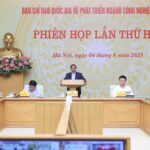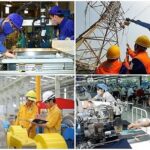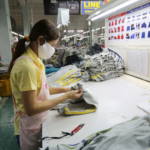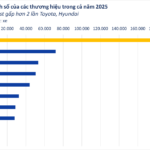Dassault Systèmes and the National Innovation Center of Vietnam (NIC) recently joined forces to host an influential business forum, gathering over 50 senior leaders from the semiconductor, high-tech, government, and academic sectors. With a focus on fostering Vietnam’s semiconductor ecosystem, the event served as a strategic platform for multi-stakeholder dialogue, aligning with the country’s ambitions in digital innovation, human capital development, and strategic collaborations.
The forum, held at the InterContinental Hanoi Westlake, highlighted Vietnam’s determination to achieve self-sufficiency in chip design, manufacturing, and testing by 2027, solidifying its position as a significant player in the regional and global landscape.
In his opening remarks, Dr. Vo Xuan Hoai, Deputy Director of the National Innovation Center (NIC), emphasized the significance of this event as a platform for leaders from government agencies, businesses, and educational institutions to exchange insights and work together towards realizing strategic orientations. He also shed light on NIC’s current focus on developing artificial intelligence and semiconductors as pivotal pillars in the digital transformation journey.
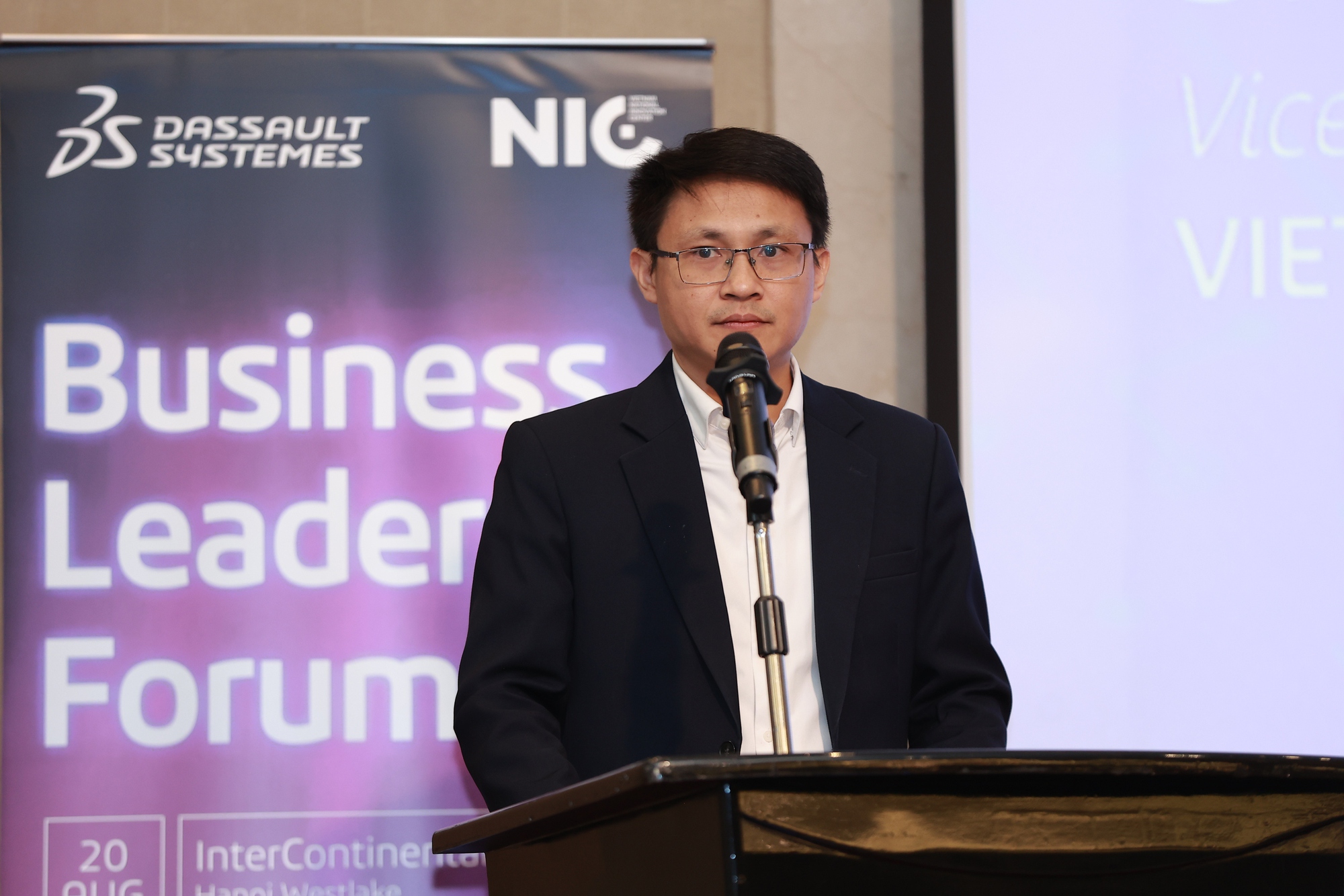
Dr. Vo Xuan Hoai, Deputy Director of the National Innovation Center (NIC)
Dr. Hoai also shared that NIC is committed to fostering talent development in artificial intelligence and semiconductors, underscoring the importance of these fields in Vietnam’s digital transformation journey. He revealed that in just a few days (August 25), the Center will announce plans to establish an innovation network across quantum, cybersecurity, aerospace, and unmanned aerial vehicle sectors.
The forum witnessed a significant collaboration between Dassault Systèmes and Viettel AI, underscoring their shared determination to build a strategic technology ecosystem for Vietnam. This partnership emphasizes the crucial role of talent development, aligning with the Vietnamese government’s goal of training 50,000 semiconductor engineers by 2030. It exemplifies a long-term vision for cultivating creative talent, ready to deeply engage in the global value chain, sustaining high-tech growth, and gradually establishing Vietnam as an attractive destination for international technology corporations.
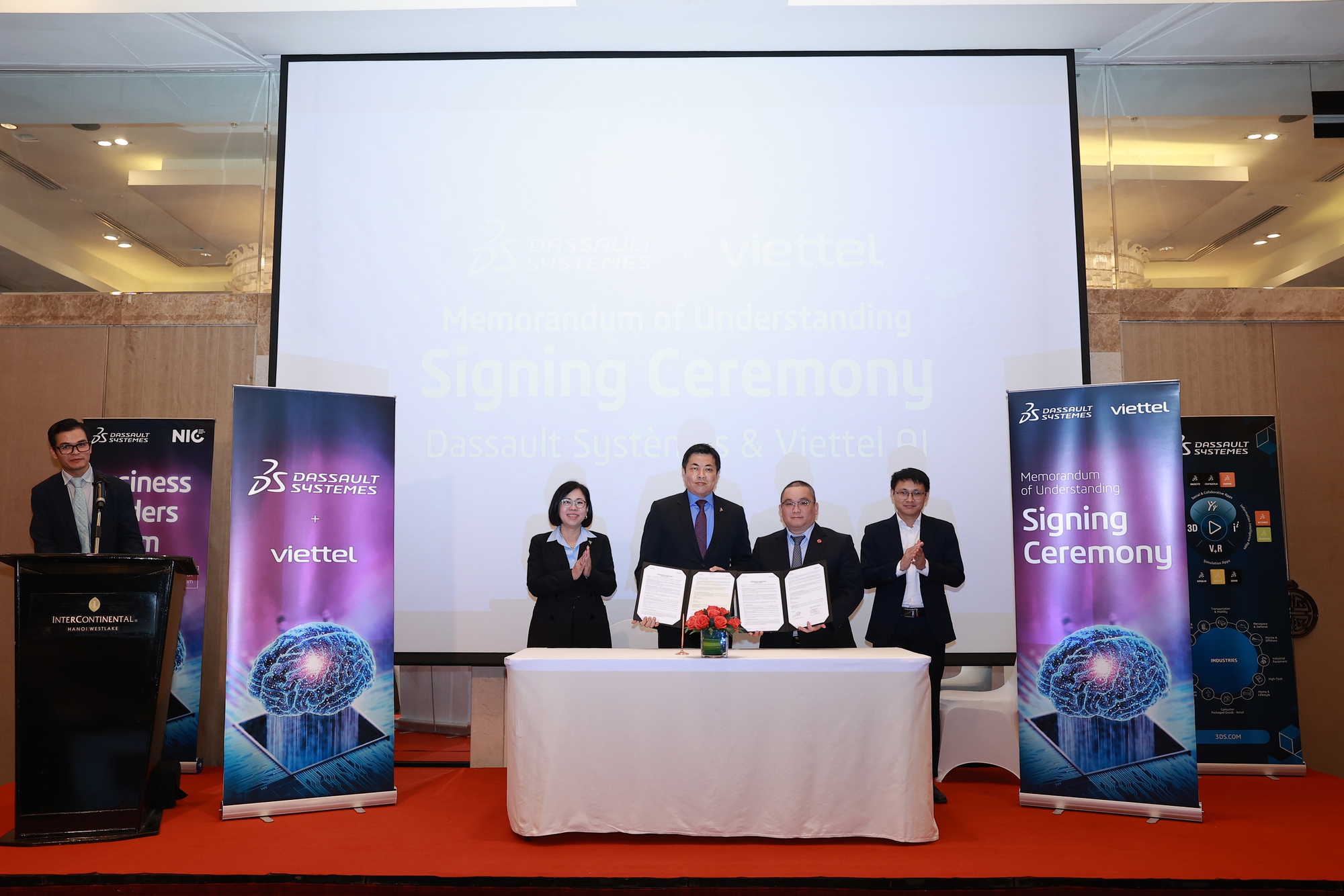
Collaboration between Dassault Systèmes and Viettel AI to build a strategic technology ecosystem for Vietnam
Catalyzing Vietnam’s Journey: Accelerating Global Integration and Innovation
The forum’s discussions centered on propelling the semiconductor ecosystem through AI-driven innovation, addressing industry challenges, and harnessing virtual twin experiences. Other key topics included data-driven manufacturing and the co-optimization of semiconductor factory technology (FTCO), alongside strategies for future-ready talent development. The insights shared by experts and regional best practices strengthened Vietnam’s global competitiveness.
Mr. Venkat Srivatsn Balasubramanian, Industry Process Consulting Director at Dassault Systèmes, offered insights into the global nature of semiconductor production, spanning multiple geographic regions. He highlighted the intricate production process, involving over 1,000 steps and frequently crossing international borders more than 70 times before reaching the end customer. The pandemic, he noted, caused unprecedented chip shortages, disrupting manufacturing capabilities in industries such as automotive in the EU.
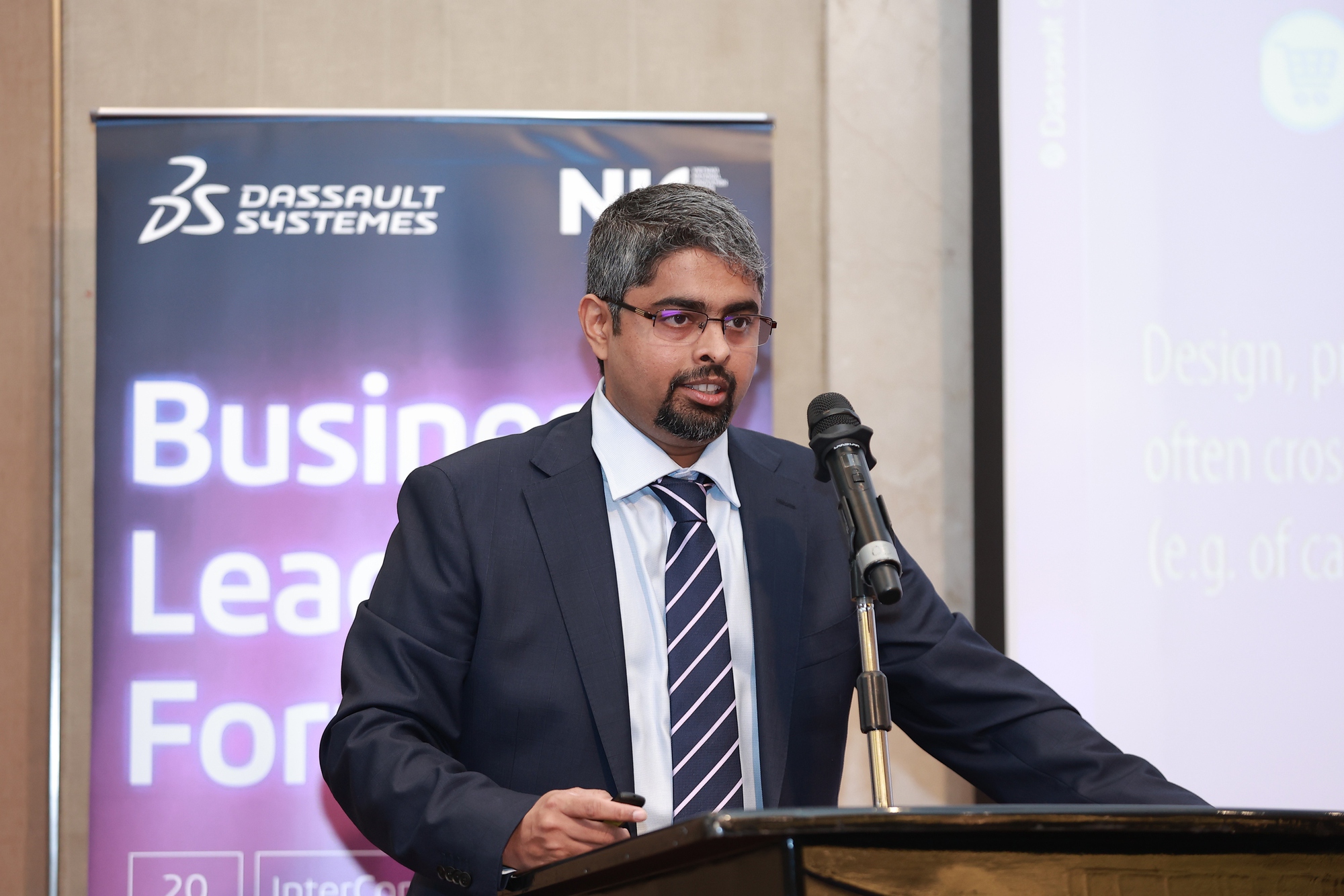
Mr. Venkat Srivatsn Balasubramanian, Industry Process Consulting Director at Dassault Systèmes
Dassault Systèmes has made significant strides in simulating most semiconductor manufacturing processes, from deposition and lithography to ion implantation, cleaning, and mechanical polishing. These simulations are validated by years of experience and global collaborations, providing a robust physical foundation for accurate predictive modeling.
Mr. Samson Khaou, Senior Vice President, Asia-Pacific, Dassault Systèmes, provided an illustrative example of 3D IC and high-bandwidth memory (HBM). He explained how simulation used to be a discrete, step-by-step process involving CAD design, pre and post-processing, and HPC calculations, making optimization time-consuming. Now, engineers can explore the entire design space from the outset instead of testing a limited number of options.
Moreover, Dassault Systèmes has integrated simulation with artificial intelligence. “By simply changing design or process parameters, the system immediately provides feedback on the impact on product quality, while AI automates the complexities of modeling, format conversion, and result processing,” Mr. Khaou elaborated.
However, building effective AI models requires data, which is highly confidential and challenging to share in the semiconductor industry. The solution lies in leveraging virtual twins to automatically generate synthetic data for AI training. Mr. Khaou emphasized that the combination of modeling, simulation, and AI will be the catalyst for Vietnam to accelerate its global integration and innovation journey.
From a diplomatic perspective, Ms. Marie Keller, Chargé d’Affaires a.i., Embassy of France in Vietnam, reaffirmed innovation as a key priority in the France-Vietnam cooperation agenda. She highlighted the forum as a significant milestone, especially as 2025 marks the conclusion of the “France-Vietnam Innovation Year.”
Recalling the French Tech event during President Emmanuel Macron’s visit to Vietnam in May, Ms. Keller commended Vietnam’s aspirations in the semiconductor sector, evidenced by the establishment of an investment support fund, the issuance of the Semiconductor Industry Development Strategy towards 2030, and the groundbreaking of the first domestic chip factory.
“Building a semiconductor ecosystem takes time and effort. Vietnam still needs to address challenges in talent development, promote research, and foster a conducive business environment,” Ms. Keller acknowledged. She offered France’s expertise and experience from its network of 115 businesses, 3,000 jobs, and renowned research centers such as CEA Tech, as well as its ongoing project to build a €7.9 billion chip factory.
Ms. Keller emphasized France’s recognition of the strategic importance of the semiconductor industry and its willingness to expand cooperation with Vietnam in this sector, based on mutual benefits.
“Institutional Refinement for the Semiconductor Industry: Ensuring Energy and Human Capital”
The announcement, Directive 439/TB-VPCP, underscores the imperative for ministries and sectors to collectively address key bottlenecks in infrastructure, institutions, human resources, and energy. By doing so, and by actively promoting international cooperation and localizing supply chains, Vietnam’s semiconductor industry can achieve a breakthrough and ascend to new heights.



